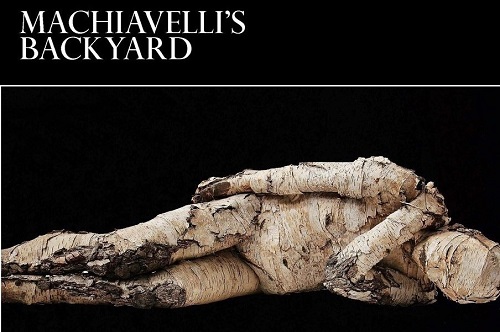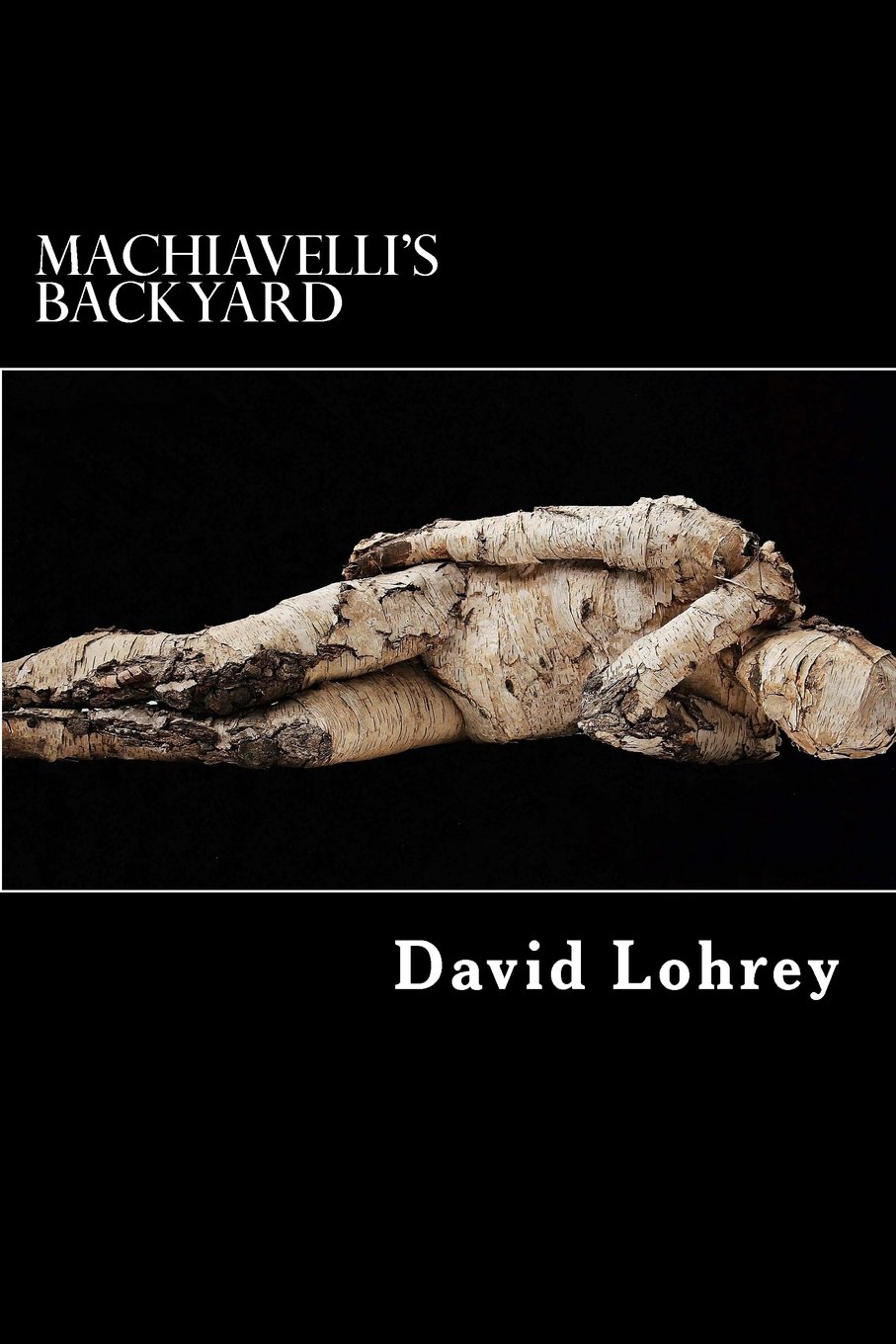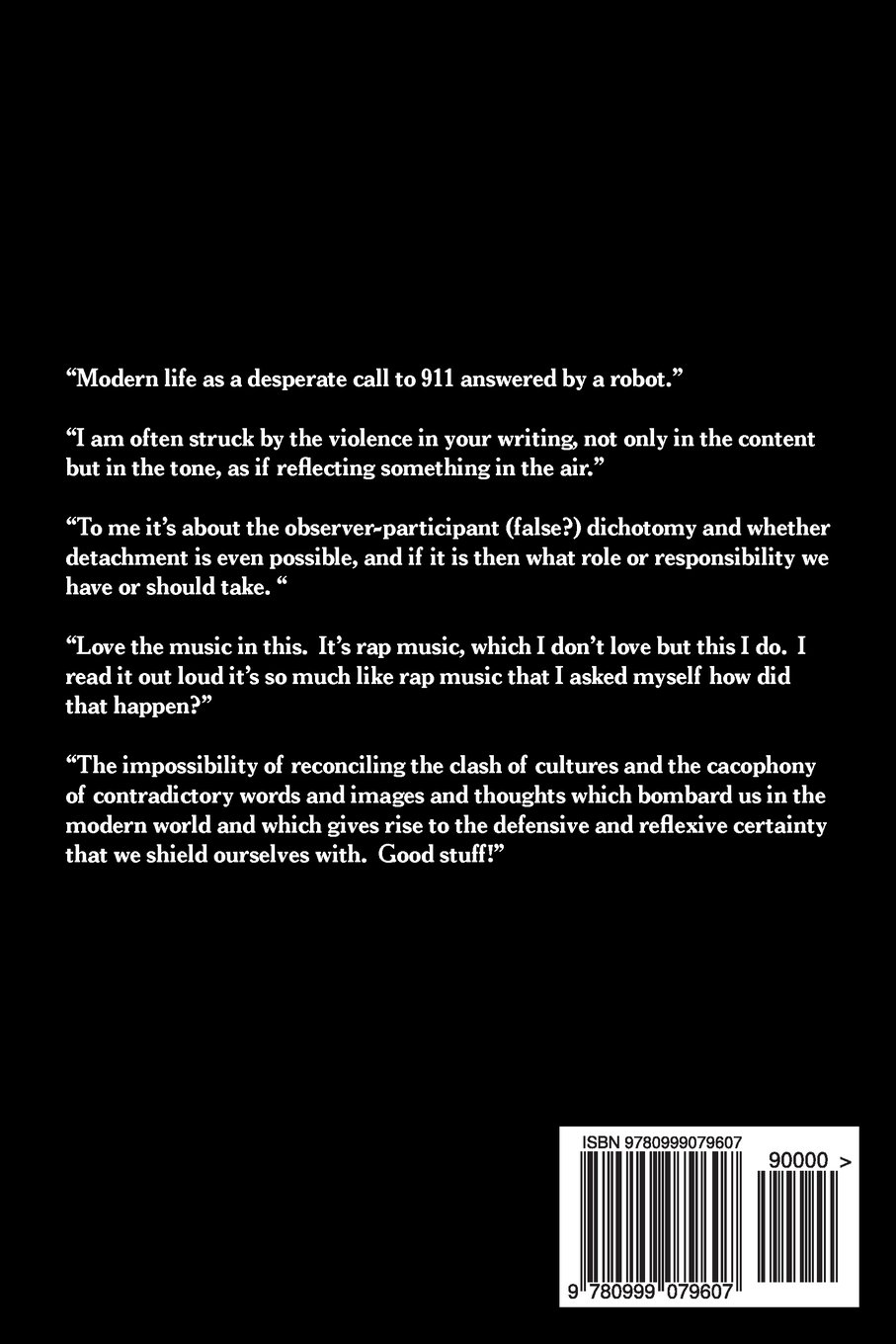Review
By
Dustin Pickering
Sudden Denouement’s first full collection of poetry offers an odd look at an individual’s past and how it relates to the history it is rooted in. The author, David Lohrey, writes on topics ranging from the Hudson Valley to teaching in several countries. He revisits his own experiences with a charming sense of humor. His work reminds one of Bob Hicok in tone and swagger.
The book has few weaknesses. For one, the political poems leave me curious as to exactly what Lohrey’s position is on subjects he discusses. But who says a poet must make a position clear? He is nostalgic for the past and yet condemning of it. The title of the book, Machiavelli’s Backyard, is symbolic in the sense that our historical past and immediate present are conditioned more by power politics than we are aware of. Does Lohrey realize this early in his life or is it something he strikes upon in his later years? He writes of coal miners, racism in the South, teaching in countries such as China and Saudi Arabia, and the murder of Otto Warmbier. He is somehow both humorous and enraged. The comedy is almost tragic but the grief waged over injustice is apparent. We can sigh or laugh, either way we are right in our assessment. Humor is life’s greatest ally and the foe of mischief. As trickster, it becomes irony. Lohrey uses this method expertly.
His technique and style is pertinent to the truth expressed in the poems. Irony commands the unexpected—in essence, it trains the truth and humiliates it. Satire is ironic. A satire piece can either aggravate or embarrass, but either way it enlightens. It challenges our sense to step outside of the usual. It bends the truth so we can see who we truly are. It does this through revelation of our nature as beings. For instance, in “Beside the Red Barn”, the irony seeps through subtly:
“Beside the red barn
at an intersection
between today and tomorrow,
a man from Alabama plays the banjo on his knee;
he whistles Dixie and wears a Confederate cap
with shoes by Nike.”
While the author is no friend of racism, he decries the silliness of political correctness. In “French Revolution” there is a tinge of bitterness concerning the efforts by mock revolutionaries to “diversify” the art world. The poet appears to take the stance that destroying or re-creating art to suit a political agenda is not only useless but wrong. The title itself mocks the idea of this commonplace attempt to cleanse art of impurity.
The most touching poem in Machiavelli’s Backyard is more personal than political. “Next Door Neighbor” is a poem on loneliness and dying. In it Lohrey writes:
“The man moans for all that’s gone,
including his once sharp mind.”
The strange thing about the poem is it invokes a personal past. We are led to the belief that a personal history is part and parcel of historical time. Each moment is a fragment of history. The man in this poem is preparing to leave the world, alone, and only wants someone to talk with and company to enjoy. His loneliness is conveyed in the distinct sounds of the words in the poem. His neighbor who he eventually equates with himself is contrasted with other lonely people. The contrasts illuminate what it is to be old and lonely compared to the hopeful loneliness of younger people. I think of Eliot’s phrase, “The world ends not with a bang, but a whimper.”
All in all, this poetry is strange and sometimes multilayered. It doesn’t work so much on the imagination as on the intellect. In this work, we are expected to observe and think rather than envision. Lohrey, in spite of being older, is keenly aware of the political rage developed by misguided activists and keeps his rebellious spirit alive to fight it. He’s unafraid of the misguided masses and their torturous pitchforks. In this day and age, it is impossible to speak justly without a sense of Self. A writer must recognize the perils of the modern age and not allow himself to be the victim of them. Push back against the machine. Set it against itself. Rebel in wholehearted ecstasy.
This collection is a sharp kick to the groin of today’s intellectual climate. It is worth exploring, not because of its content, but because of its spirit. The humor allows the reader to see the dementia in everyday life, and yet we realize what life truly is. The inescapable influence of society and those who use it to push us into corners is candidly questioned by these poems. Questioned, not to inquire, but to interrogate.
‘Machiavelli’s Backyard’ can be purchased here
David Lohrey
David Lohrey is from Memphis, and now lives in Tokyo. He graduated from UC Berkeley. Internationally, his poetry can be found in Otoliths, Stony Thursday Anthology, Sentinel Quarterly, and Buckshot Magazine. In the US, recent poems have appeared in Poetry Circle, FRiGG, Obsidian, and Apogee Journal. His fiction can be read in Crack the Spine, Dodging the Rain, Literally Stories, and The Broke Bohemian. David’s The Other Is Oneself, a study of 20th century literature, was published last year, while his first collection of poetry, Machiavelli’s Backyard, was released in August. He is a member of the Sudden Denouement Collective.
Dustin Pickering
Dustin Pickering is the founder of Transcendent Zero Press, a Texas-based literary press. He is Editor-in-Chief of Harbinger Asylum. He was a Special Guest Poet at Austin International Poetry Festival in 2013, and a feature poet for Public Poetry that same year. He is published in a variety of places, both online and in print. His current project is “Opening the Vault”, a blog of interviews concerning writing and the writer’s life in addition to essays, quips, and discussions. It is intended to serve as inspiration during dry moments in the craft.






No Comments Yet!
You can be first to comment this post!